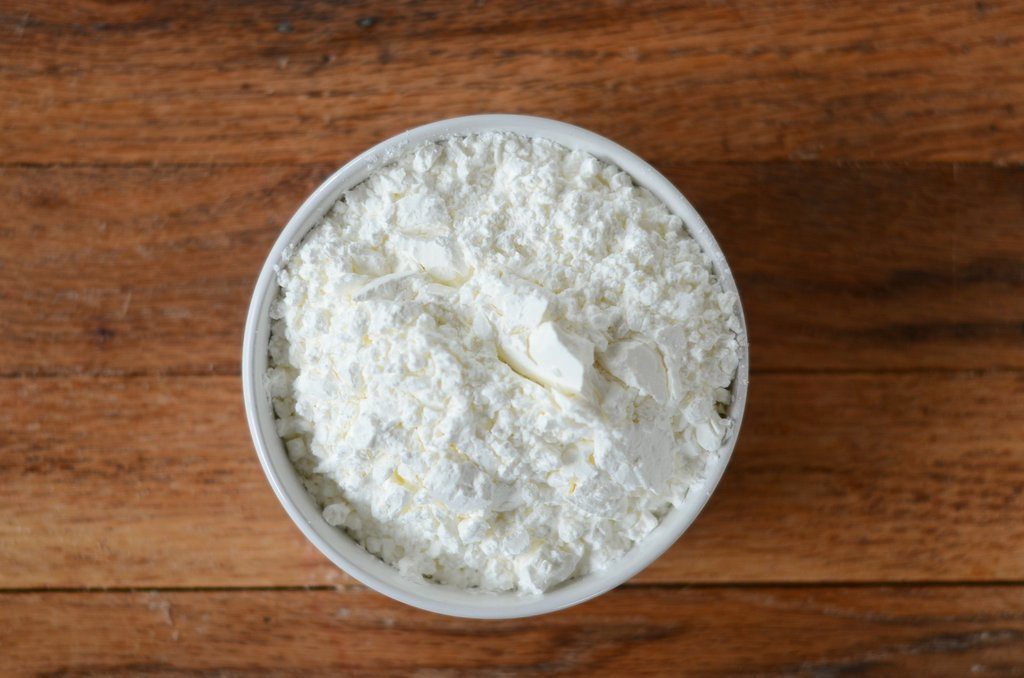Arrowroot, tapioca, wheat flour, potato starch, rice flour, xanthan gum, ground flax seeds, psyllium husk and glucomannan are some of the substitutes that you can use for cornstarch from your kitchen.
In the preparation of cakes or in the making of soups, there are several ingredients that are used in order to make it perfect and also get the right kind of consistency as well. One of those many ingredients is cornstarch. No doubt it may not sound that important but its mainly required to take in the excess water and not make the final product watery and loose. But what is there weren’t any kind of cornstarch left for you to bake your favorite cake or make your soup? Well, there are cornstarch substitutes that you can use readily available in your kitchen. Let us take a look at the 9 substitutes that you can use for cornstarch from your kitchen.
Read More: Health Benefits of Corn or Maize for Kids
9 Best Substitutes for Cornstarch in your Kitchen
Arrowroot
You might seem surprised to hear arrowroot in the cornstarch category but then arrow roots can act as a perfect substitute for cornstarch in making those perfect soups and also use it as a perfect water absorbent as well. Arrowroots happens to be crushed into a fine powder after being dried. Thus they are high in fiber and also a natural supplement in order to get those high nutritional values for your food.
Tapioca
This sub-urban form of cornstarch substitute is made from a root vegetable known as the cassava plant. But then cyanide is also manufactured from these vegetables and hence tapioca happens to be used in little quantity along with cornstarch. This also acts as a substitute flour for cornstarch and has those high starch factors that you might be looking to add to your cooking.
Wheat flour
By the addition of wheat flour to any of the products that you might be making, its acts as a perfect substitute for cornstarch as wheat flour contains higher levels of proteins, fiber and double the quantity of starch itself. But then this might not be recommended for people who might be suffering from celiac disease as it is not gluten-free. Wheat flour is manufactured by grinding wheat into a fine powder that can be readily available in your local grocery market.
Read More: 21 Exciting Science Experiments for Kids
Potato starch
No doubt potatoes are the epitome for all fast food cooking, but then starch can be obtained from them as well. Furthermore, potatoes are crushed and then dried in order to make them into a fine powder much similar to arrowroots. Potato starch happens to low in protein and fiber but high in the starch factor of water and liquid absorption. Therefore, its recommended to use potato starch in a 1:1 ratio in order to get the right proportion of the cornstarch effect.
Rice flour
It is one of the best cornstarch substitutes that you can find in your kitchen and it is readily available at all times. Manufactured by crushing finely grown rice, it is used in almost all the categories for cooking. It is colorless and gluten free, therefore it is advisable for people of all ages for its consumption. Furthermore, because of such properties, it can replace cornstarch completely and can be added in double quantities of that of cornstarch.
Xanthan gum
Who knew that fermenting sugar and the addition of a certain kind of bacteria could get us a product called Xanthan gum. This is a product that looks to replace cornstarch completely in the kitchen. It is not advisable for people to have more of this as a little addition of this can thicken liquids of greater quantity. Also proven to cause digestive problems, wouldn’t be recommended as a substitute for cornstarch but then acts wonderfully when larger quantities of liquids need to be thickened with a minute addition of the gum.
Read More: 51 Effective Home Remedies for Simple Baby Ailments
Ground flax seeds
Another great find in your kitchen could be ground flax seeds. These seeds are not only rich in fiber but can reduce the use of cornstarch by a whole lot. Furthermore, they, when used in a minute quantity, can give the same effect of cornstarch when added in 3 tablespoons. No doubt these are used in the making of jelly’s as they absorb water and turn them into a jelly-like substance, they can also be used as a cornstarch substitute.
Psyllium husk
Another fiber based supplement, it might be hard to find them in your kitchen but then they act as a natural ingredient for liquid thickening without any kind of side effects and also act as a natural medication in cases if you have any kind of digestive disorders. One spoon of psyllium husk can give you the same effect of 3 tablespoons of cornstarch.
Glucomannan
This form of substitute of cornstarch is extracted from the konjac plant and mainly from the roots. It’s an odorless powder that is added when there is absolutely no presence of cornstarch on your kitchen shelf. Also, they start to act when its heated with the liquid that its mixed with and can give you great results with the minimal addition of the product. Not only this but is a naturally occurring product and helps people with problems in the small intestine and digestive disorders. Also helps in maintaining an overall healthy gut over a long span of time. These are a couple of reasons why people with low carb diet use glucomannan as a substitute for cornstarch. But then glucomannan also has no proteins or fibers. It simply is added in order to thicken the liquid and nothing else.













